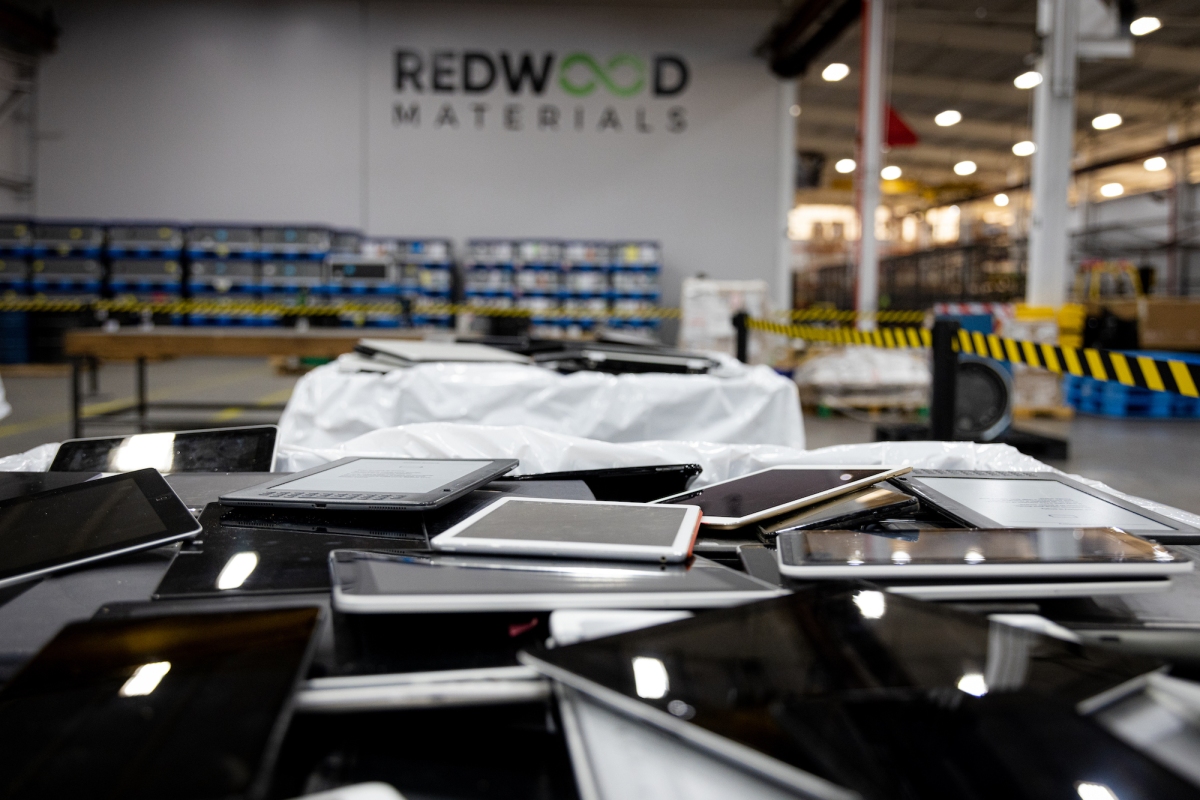Redwood Materials to supply Panasonic with cathode material in multi-billion-dollar deal • ZebethMedia
Battery materials and recycling startup Redwood Materials has landed a multi-billion-dollar deal to supply critical battery components to Panasonic as efforts accelerate to build a domestic supply chain in North America to support the coming influx of EVs.
Redwood said Tuesday it will supply Panasonic Energy of North America with cathode material for battery cells produced at a new factory currently under construction in Kansas. The new $4 billion Panasonic factory, which will be larger than the Gigafactory operates with Tesla in Sparks, Nevada, is expected to begin mass production of its “2170” cylindrical lithium-ion batteries by March 2025.
The deal, the largest yet for Redwood, is valued at several billion dollars.
Lithium-ion batteries contain three critical building blocks. There are two electrodes, an anode (negative) on one side and a cathode (positive) on the other. Typically, an electrolyte sits in the middle and acts as the courier to move ions between the electrodes when charging and discharging. Cathode foils, which accounts for over half the cost of a battery cell, contain lithium, nickel and cobalt. Redwood is able to capture all of those materials through its battery recycling and processing.
Initially, the cathode materials supplied to Panasonic at the Kansas factory will contain about 30% recycled lithium and nickel and 100% recycled cobalt, Redwood founder and CEO JB Straubel told ZebethMedia. That percentage will increase as more batteries — used in EVs and electronics — no longer have a useful life and enter into a pipeline where they’re recycled and processed by Redwood.
“It’s a pretty exciting, real example of the closed loop ecosystem actually happening,” Straubel said, adding that he is confident the percentage of virgin material can get near zero. ” It will take a while for the industry as a whole to have enough material in circulation to do that. We’re a long way away from that for every element. But it can happen much sooner with things like cobalt.”
Image Credits: Redwood Materials
The Kansas factory deal expands on startup’s existing partnership with Panasonic. Several years ago, Redwood began recycling the scrap from battery cell production at the Gigafactory, extracting and then processing materials like cobalt, nickel and lithium that are typically mined, and then supplying to back to Panasonic.
Redwood also recycles consumer electronics like cell phone batteries, laptop computers, power tools, power banks, scooters and electric bicycles to access, process and supply critical materials to companies like Panasonic and Amazon. The Carson City, Nevada-based company recycles about 10 gigawatt-hours of battery material annually, and “that’s increasing daily,” Straubel said.
Redwood has since expanded beyond the recycling business, a move that is part of Straubel’s strategy to create a circular supply chain. In January, Redwood said it would supply Panasonic with copper foil produced from recycled materials, a critical component of the anode side of a battery cell. Redwood is expected to start producing the copper foil this month.
Redwood is also producing the anode and cathode foils for companies like Panasonic and is making major investments in the U.S., including building its own factory, to bring cathode online and ramp production to 100 GWh, enough for 1 million EVs by 2025. Straubel, who wouldn’t give an exact investment figure, said the company is spending several billion dollars on these efforts.
By 2030, Redwood said it expects production of both anode and cathode to scale to 500 GWh/year of materials, enough to power five million electric vehicles.
Redwood has reached agreements with a number of automakers and other OEMs, including Ford, Proterra, Toyota and Volvo to collect, refurbish and recycle batteries and battery materials that can be sent to back to each company’s respective battery plant.
Those deals will likely continue as automakers and cell manufacturers bring more production to the North America. The trend, which had started a couple of years ago, has accelerated with the passage of the Inflation Reduction Act. Within the massive climate-and-energy focused bill is a set of new parameters around EVs that prioritizes and rewards companies that bring battery cell production as well as vehicle assembly to North America.
“The IRA sort of straps rocket boosters on this entire industry and direction,” Straubel said. “It obviously accelerates everything and it provides a lot stronger incentives and demand to do this sooner.”
